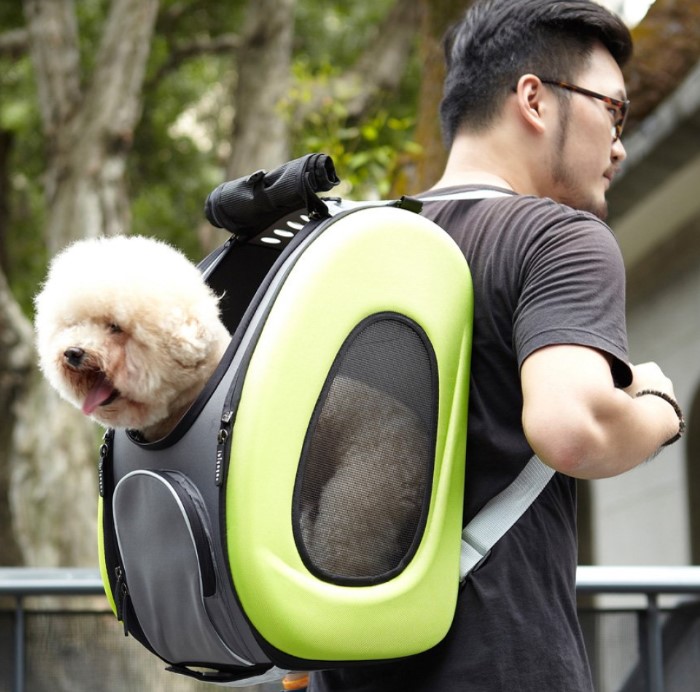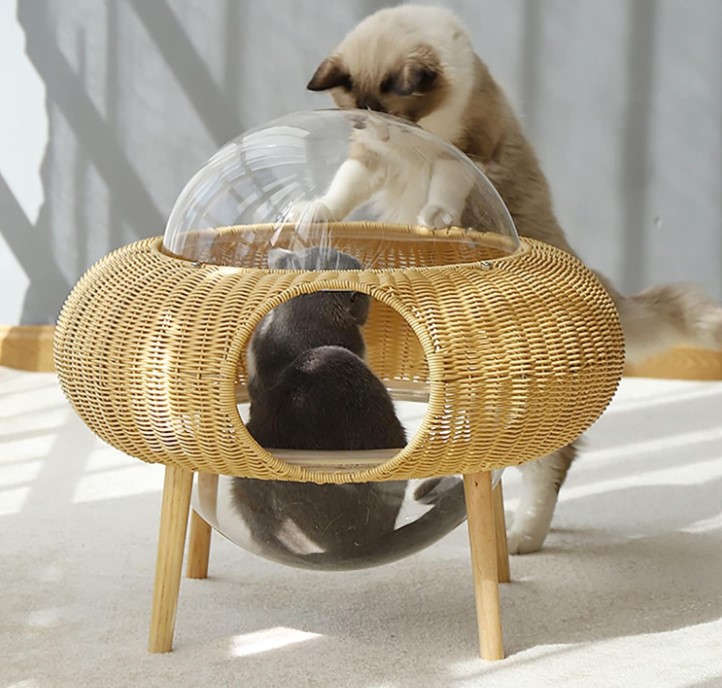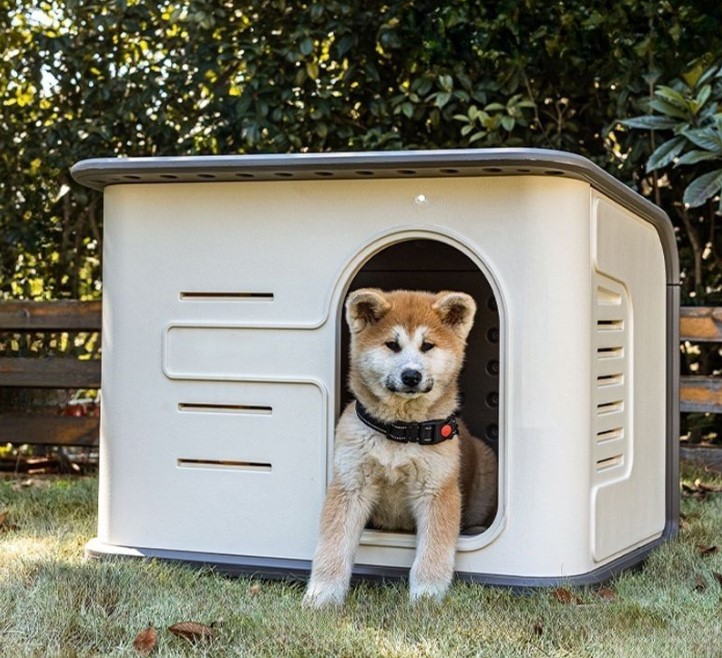The Ultimate Guide to Raising a Happy, Healthy, and Well-Adjusted Puppy
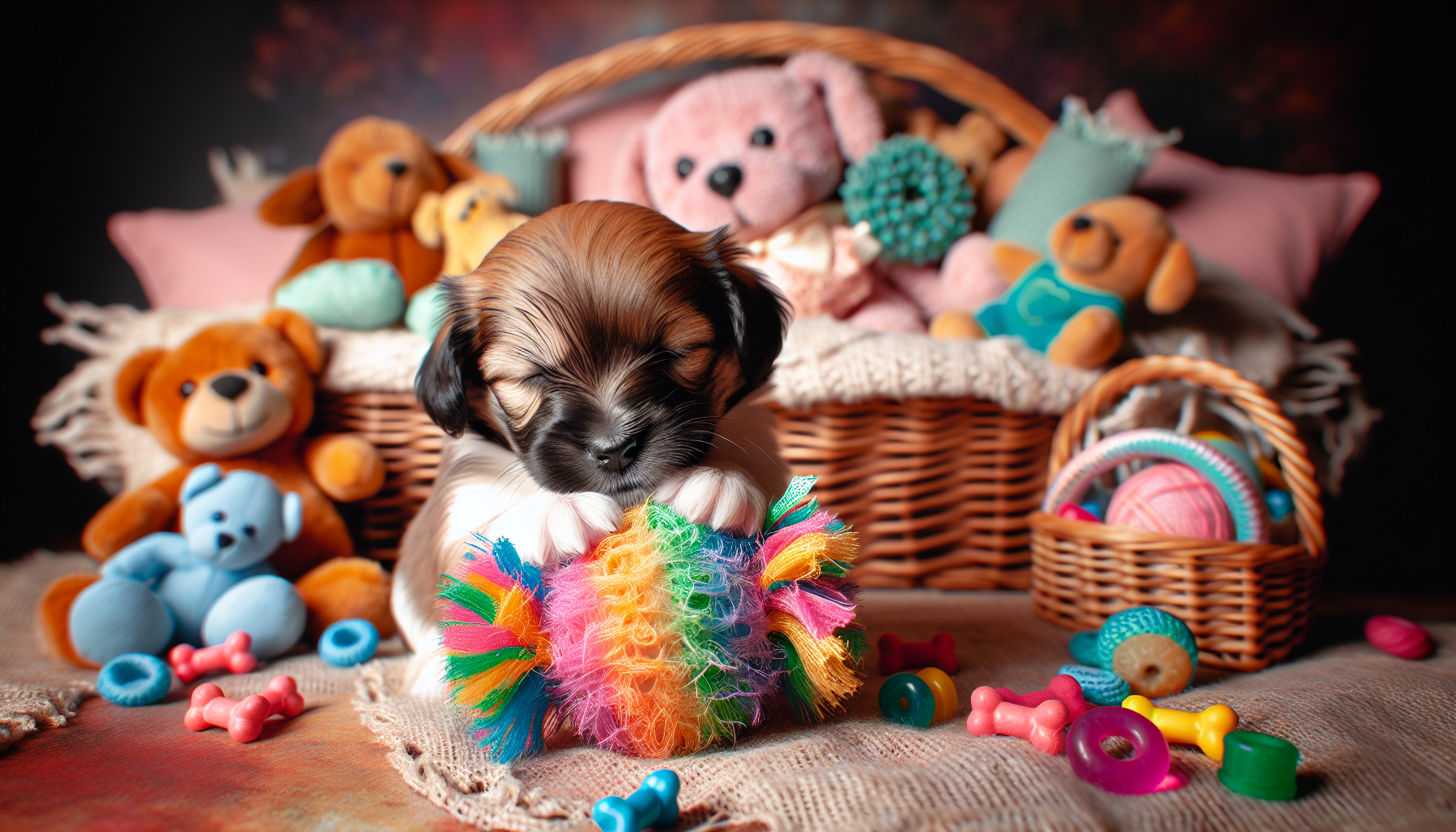
Welcoming a new furry friend into your family can be a life-changing experience, filled with joy, laughter, and unconditional love. As you prepare to bring your new three-week-old puppy home, it’s essential to remember that this tiny ball of fluff is dependent on you for everything. From nutrition to socialization, health, and hygiene, the first few weeks of your puppy’s life set the stage for a lifetime of happiness and well-being. In this article, we’ll guide you through the essential tips and tricks for caring for and socializing your new puppy, ensuring a smooth transition into your family and a strong foundation for a lifelong bond. Whether you’re a seasoned pet owner or a first-time fur parent, this article will provide you with the knowledge and confidence you need to give your new puppy the best possible start in life. So, buckle up and get ready for the adventure of a lifetime!
As you embark on this journey, remember that every puppy is unique, with their own personality, quirks, and needs. By understanding and catering to these needs, you’ll create a nurturing environment that fosters growth, development, and a deep connection between you and your puppy. From feeding schedules to playtime, socialization, and health checks, every aspect of your puppy’s care is crucial to their overall well-being.
In the following sections, we’ll delve into the world of puppy care, exploring the essential topics that every new puppy parent needs to know. From puppy-proofing your home to creating a positive and loving environment, we’ll cover it all. So, sit back, relax, and get ready to learn everything you need to know about caring for your new three-week-old puppy.
1. Bringinging Home a New Best Friend: Preparation is Key
Bringinging home a new best friend is an exciting milestone, but it’s essential to remember that it’s a significant responsibility too. Before bringing your new puppy home, it’s crucial to prepare yourself and your home for the arrival of your new furry friend. This preparation will not only ensure a smooth transition for your puppy but also help you navigate the challenges that come with raising a new pet. From puppy-proofing your home to stocking up on essentials, preparation is key to creating a happy and healthy environment for your puppy to thrive.
By taking the time to prepare, you’ll be able to provide your puppy with the care and attention they need to grow and develop. This includes setting up a comfortable and safe space for your puppy to sleep, eat, and play, as well as stocking up on essential items such as food, toys, and grooming tools. Additionally, it’s essential to prepare your family and other pets in the household for the arrival of your new puppy, ensuring a harmonious and welcoming environment.
With preparation, you’ll be able to focus on the joys of puppy parenthood, such as bonding with your puppy, watching them learn and grow, and experiencing the unconditional love and affection they bring to your life. So, take the time to prepare, and get ready to welcome your new best friend into your family! By doing so, you’ll set the stage for a lifelong journey of happiness, companionship, and love.
Puppy-Proofing Your Home
Puppy-proofing your home is an essential step in preparing for the arrival of your new furry friend. As a responsible and caring pet owner, it’s crucial to ensure that your home is a safe and happy environment for your puppy to explore and play. This means removing any potential hazards, securing toxic substances, and protecting your belongings from those curious little teeth and paws.
Start by conducting a thorough sweep of your home, identifying any potential hazards such as electrical cords, toxic substances, and fragile items. Move these items out of reach or secure them in a safe location. You should also block off areas that you don’t want your puppy to access, such as the kitchen or bathroom, and install baby gates or pet barriers to restrict their movement. Additionally, consider puppy-proofing your furniture and belongings by using protective covers and moving valuable items to high shelves.
By taking the time to puppy-proof your home, you’ll be able to create a safe and welcoming environment for your puppy to grow and thrive. This will not only give you peace of mind but also allow your puppy to explore and play without the risk of injury or harm. Remember, a well-prepared home is a happy home, and with a little time and effort, you can create a haven for your new furry friend.
Stocking Up on Essentials
2. Nutrition and Hydration: Fueling Growth and Development
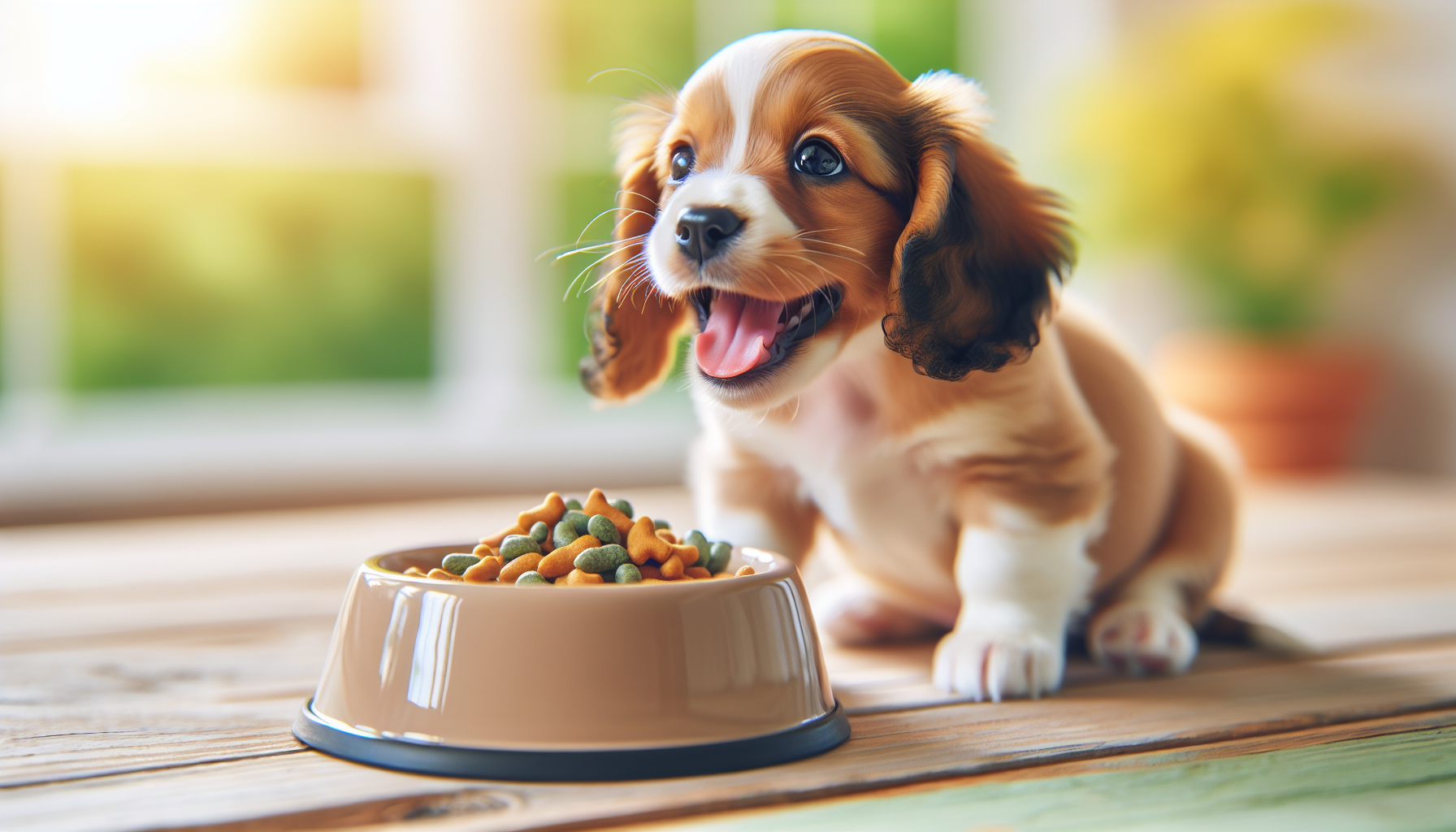
Proper nutrition and hydration are the building blocks of your puppy’s growth and development. A well-nourished puppy is a happy and healthy puppy, and it’s essential to provide your furry friend with the right food and water to support their rapid growth. During the first few months, your puppy will grow at an incredible rate, and their diet will play a critical role in shaping their overall health and well-being.
A high-quality puppy food should be rich in protein, moderate in fat, and limited in carbohydrates. It should also contain essential vitamins, minerals, and antioxidants to support healthy growth and development. In addition to food, access to fresh, clean water is crucial to keep your puppy hydrated and energized. Make sure to provide multiple water sources throughout the day, and encourage your puppy to drink frequently.
By fueling your puppy’s growth and development with proper nutrition and hydration, you’ll be setting them up for a lifetime of health and happiness. A well-fed puppy is a happy puppy, and with the right diet and hydration, you’ll be able to support their growth and development every step of the way. So, take the time to research and choose the best food and water options for your puppy, and watch them thrive and flourish!
Choosing the Right Food for Your Puppy
Choosing the right food for your puppy is a crucial decision that can impact their overall health and well-being. With so many options available, it can be overwhelming to navigate the world of puppy food. But don’t worry, we’re here to help! When it comes to puppy food, there are several types to choose from, including kibble, canned, raw, and homemade diets. Each type has its own unique benefits and drawbacks, and it’s essential to understand the differences to make an informed decision.
Kibble is a popular choice for many puppy owners, as it’s convenient and often cost-effective. However, some kibbles may contain fillers and by-products, which can be detrimental to your puppy’s health. Canned food, on the other hand, can be a nutritious option, but it may be more expensive and have a shorter shelf life. Raw and homemade diets require more time and effort, but they can provide a more natural and tailored approach to your puppy’s nutrition.
Ultimately, the best food for your puppy is one that meets their individual needs and provides a balanced diet. Look for foods that are high in protein, moderate in fat, and limited in carbohydrates. Avoid foods with fillers, by-products, and artificial additives, and opt for whole, named ingredients instead. By choosing the right food for your puppy, you’ll be setting them up for a lifetime of health and happiness. So, take the time to research and explore the various options, and consult with your veterinarian to find the perfect fit for your new furry friend!
Feeding Schedule and Hydration Tips
As a new puppy parent, it’s essential to establish a feeding schedule that meets your puppy’s unique needs. Puppies require frequent feeding, especially during the first few months, to support their rapid growth and development. A general rule of thumb is to feed your puppy 3-4 times a day until they are about six months old, and then gradually switch to twice a day. However, it’s crucial to consult with your veterinarian to determine the best feeding schedule for your puppy, as their individual needs may vary.
In addition to a well-planned feeding schedule, hydration is critical to your puppy’s health. Puppies need access to fresh, clean water at all times, and it’s essential to monitor their water intake to ensure they’re staying hydrated. You can encourage your puppy to drink more water by making it easily accessible, adding a few ice cubes to their water bowl to make it more appealing, and even adding a small amount of low-sodium chicken broth to their food to make mealtime more engaging.
By following these expert feeding and hydration tips, you’ll be able to support your puppy’s overall health and happiness. Remember, a well-fed and hydrated puppy is a happy and energetic puppy, and with a little planning and attention, you’ll be able to provide your puppy with the best possible start in life. So, take the time to research and consult with your veterinarian, and watch your puppy thrive!
3. Socialization: The Key to a Confident and Well-Adjusted Puppy
Socialization is a critical component of your puppy’s development, and it’s essential to start early. Between three weeks and 16 weeks, your puppy is in a critical period of socialization, during which they are most receptive to new experiences and environments. During this time, it’s crucial to expose your puppy to a wide range of sights, sounds, and experiences to help them develop into a confident and well-adjusted adult.
Effective socialization involves more than just exposing your puppy to new people and environments. It’s about creating a positive and gentle experience that helps your puppy feel comfortable and confident in new situations. This can be achieved through a variety of methods, including puppy classes, playdates, and controlled exposure to new sights and sounds. Remember, socialization is not about overwhelming your puppy, but about providing a gradual and gentle introduction to new experiences.
By prioritizing socialization, you’ll be able to help your puppy develop into a confident and well-adjusted adult. A well-socialized puppy is more likely to be calm, curious, and friendly, and is less likely to develop anxiety or fear-based behaviors. So, take the time to research and plan a socialization strategy that works for you and your puppy, and watch them thrive!
The Importance of Early Socialization
Early socialization is a critical component of your puppy’s development, and it’s essential to prioritize it during the first 16 weeks of life. During this period, your puppy is most receptive to new experiences and environments, and it’s crucial to expose them to a wide range of sights, sounds, and experiences. This early socialization lays the foundation for a lifetime of confidence, calmness, and good behavior, and helps to prevent fear-based behaviors and anxiety.
Without early socialization, your puppy may develop fears and phobias that can be difficult to overcome later in life. They may become wary of new people, environments, and experiences, and may even develop aggression or fear-based behaviors. On the other hand, a well-socialized puppy is more likely to be confident, curious, and friendly, and is better equipped to handle new situations and challenges.
By prioritizing early socialization, you’ll be able to help your puppy develop into a well-adjusted and well-behaved adult. It’s a small investment of time and effort that can pay dividends for a lifetime, and is essential for helping your puppy reach their full potential. So, take the time to research and plan a socialization strategy that works for you and your puppy, and watch them thrive!
Tips for Socializing Your Puppy
Socializing your puppy is a crucial part of their development, and it’s essential to start early. One of the most effective ways to socialize your puppy is through exposure to new environments. Take your puppy on regular outings to new places, such as parks, pet stores, and friends’ homes. This will help them become confident in new surroundings and reduce the risk of fear-based behaviors.
Another key aspect of socialization is exposing your puppy to new people. Invite friends and family over to meet your puppy, and encourage them to interact with your puppy in a gentle and positive way. You can also take your puppy to puppy classes or socialization groups, where they can meet other puppies and people. This will help your puppy develop good social skills and reduce the risk of fear or aggression towards strangers.
Finally, socializing your puppy with other animals is also important. If you have other pets in the household, introduce them to your puppy gradually and under controlled circumstances. You can also take your puppy to dog parks or puppy playdates, where they can interact with other dogs. Remember to always supervise interactions and ensure that they are positive and gentle. By following these tips, you’ll be able to help your puppy develop into a confident and well-adjusted adult.
4. Health and Hygiene: Keeping Your Puppy Happy and Healthy
As a responsible and caring pet owner, it’s essential to prioritize your puppy’s health and hygiene. A healthy and happy puppy is a joy to be around, and with the right care and attention, you can help your puppy thrive. From regular veterinary check-ups to a balanced diet and plenty of exercise, there are many ways to keep your puppy in top condition.
One of the most important aspects of your puppy’s health and hygiene is their grooming. Regular brushing, nail trimming, and ear cleaning can help keep your puppy clean and comfortable, and reduce the risk of health problems. You should also keep an eye out for any signs of illness, such as vomiting, diarrhea, or lethargy, and seek veterinary attention if you have any concerns.
By following these simple tips and advice, you’ll be able to help your puppy stay healthy and happy. Remember, a healthy puppy is a happy puppy, and with the right care and attention, you can help your puppy live a long and happy life. So, take the time to research and learn about your puppy’s health and hygiene, and give them the best possible start in life.
Veterinary Care and Vaccinations
Regular veterinary care and vaccinations are essential for your puppy’s health and well-being. From the moment you bring your puppy home, it’s crucial to establish a relationship with a veterinarian and schedule regular check-ups. These visits will not only help your puppy receive any necessary vaccinations, but also provide an opportunity for your veterinarian to monitor their growth and development, and identify any potential health issues early on.
Vaccinations, in particular, play a critical role in protecting your puppy from serious and potentially life-threatening diseases. The core vaccinations, such as the rabies, distemper, and parvovirus vaccines, are essential for all puppies, and your veterinarian may also recommend additional vaccinations based on your puppy’s lifestyle and risk factors. By staying on top of your puppy’s vaccination schedule, you can help ensure their protection against these diseases and give them the best possible start in life.
By prioritizing regular veterinary care and vaccinations, you’ll be able to help your puppy stay healthy and happy, and reduce the risk of serious health problems. Remember, your veterinarian is a valuable resource, and by working together, you can provide your puppy with the best possible care. So, don’t hesitate to schedule those regular check-ups and stay on top of your puppy’s vaccination schedule!
Grooming and Hygiene Tips
Keeping your puppy clean and well-groomed is an essential part of their care and well-being. Not only does it help them feel comfortable and confident, but it also plays a crucial role in their overall health. From bathing and nail care to ear cleaning and dental hygiene, there are many ways to keep your puppy clean and well-groomed.
One of the most important aspects of grooming is bathing. Depending on your puppy’s breed and lifestyle, they may need to be bathed weekly, biweekly, or monthly. Be sure to use a gentle puppy shampoo and warm water, and avoid getting water in their ears or eyes. In addition to bathing, regular nail trimming is essential to prevent overgrowth and cracking. You can trim your puppy’s nails at home or take them to a professional groomer.
Ear cleaning and dental hygiene are also crucial for your puppy’s health. Use a gentle ear cleaner and cotton balls to remove dirt and debris from your puppy’s ears, and brush their teeth regularly to prevent tartar buildup and promote healthy gums. By following these simple grooming and hygiene tips, you’ll be able to help your puppy feel their best and stay healthy and happy.
5. Creating a Positive and Loving Environment
Creating a positive and loving environment is essential for your puppy’s growth and development. A warm and welcoming home can help your puppy feel secure and confident, and lay the foundation for a strong and loving bond between you and your pet. By providing a comfortable and nurturing space, you can help your puppy thrive and reach their full potential.
A positive and loving environment can be created through a combination of physical and emotional factors. Physically, this means providing a comfortable and safe space for your puppy to rest, play, and relax. This can include a cozy bed, a secure crate, and a variety of toys and chews to keep them entertained. Emotionally, it means providing a sense of security and stability, through consistent routines, positive reinforcement, and plenty of love and attention.
By creating a positive and loving environment, you can help your puppy feel happy, relaxed, and fulfilled. This, in turn, can help to reduce stress and anxiety, and promote good behavior and a strong bond between you and your pet. So, take the time to create a warm and welcoming home for your puppy, and watch them thrive in a positive and loving environment.
Positive Reinforcement Training
Positive reinforcement training is a powerful and effective way to train your puppy, promoting good behavior and a strong bond between you and your pet. This approach focuses on rewarding desired behaviors, rather than punishing undesired ones, and is based on the principle of associating positive outcomes with good behavior. By using positive reinforcement training, you can help your puppy develop good habits, build confidence, and strengthen your relationship.
One of the key benefits of positive reinforcement training is that it encourages a positive and uplifting attitude towards learning. By focusing on rewards and praise, rather than punishment and correction, you can help your puppy develop a love of learning and a willingness to please. This approach is also highly effective, as it taps into your puppy’s natural desire to please and receive rewards. Additionally, positive reinforcement training is a gentle and humane way to train your puppy, promoting a sense of trust and respect.
To implement positive reinforcement training in your puppy’s training, start by identifying desired behaviors and rewarding them with treats, praise, and affection. Be consistent and patient, and remember to reward good behavior as soon as it occurs. By following these simple steps, you can help your puppy develop good habits and a strong bond with you, and set them up for a lifetime of happiness and success.
Establishing a Routine
Establishing a routine is essential for your puppy’s growth and development, providing a sense of stability and structure that helps them feel secure and confident. A well-planned routine can also help you manage your puppy’s needs, including exercise, playtime, and sleep schedules, and ensure that they receive the care and attention they need to thrive. By establishing a routine, you can help your puppy develop good habits, reduce anxiety and stress, and promote a strong bond between you and your pet.
When establishing a routine, it’s essential to consider your puppy’s age, breed, and individual needs. Puppies require regular exercise and playtime to stay healthy and happy, and need a consistent sleep schedule to ensure they get enough rest. You should also consider your own schedule and lifestyle, and plan a routine that works for you and your puppy. This may include setting aside specific times for exercise, playtime, and training, as well as regular breaks and quiet time.
By establishing a routine that works for you and your puppy, you can help create a sense of harmony and balance in your home. Remember to be flexible and adjust your routine as needed, and don’t hesitate to seek advice from a veterinarian or trainer if you need help. With a well-planned routine, you can help your puppy thrive and create a strong and loving bond that will last a lifetime.
What are the most essential items to stock up on for my new puppy?
The most essential items to stock up on for your new puppy include high-quality food, toys, treats, a comfortable bed, and grooming tools. Don’t forget to also stock up on supplies like puppy pads, a leash, and a collar.
How often should I take my puppy to the vet for check-ups?
It’s recommended to take your puppy to the vet for check-ups every 3-4 months until they are 1 year old. This will help ensure they receive all necessary vaccinations and stay healthy.
What are some signs that my puppy may be sick or in distress?
Some signs that your puppy may be sick or in distress include vomiting, diarrhea, lethargy, and loss of appetite. If you notice any of these signs, consult with your vet immediately.
How can I socialize my puppy effectively?
To socialize your puppy effectively, expose them to new people, environments, and experiences. This can include puppy socialization classes, walks, and playdates with other dogs.
What is the best way to housebreak my puppy?
The best way to housebreak your puppy is to establish a consistent routine and use positive reinforcement training. Take your puppy outside to the same spot each time, and reward them with treats and praise when they go potty in the right place.


